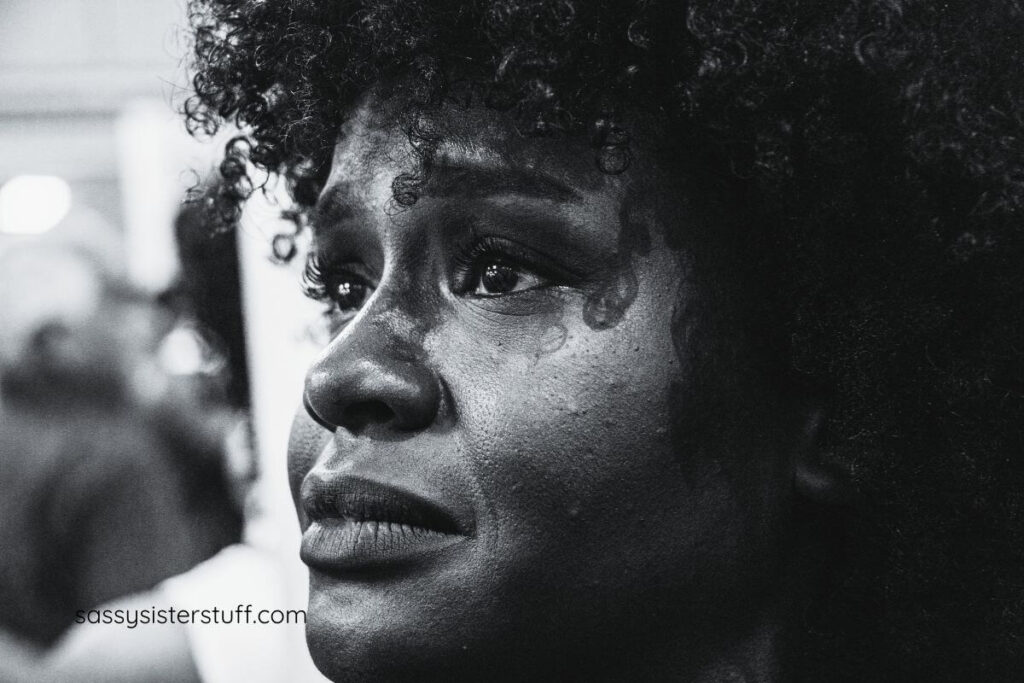Has Your Adult Child Gone No-Contact? Let’s Discuss Hope & Healing
Has your adult child gone no-contact? If so, you’re not alone. It can feel like stories of parents experiencing this are everywhere lately—and in many ways, they are.
Every time I open TikTok, I come across another heartbroken mom sharing her story of an adult child who has decided to go no-contact. Then I hop over to Facebook, and the same thing shows up in my mom groups—sad posts from women my age who are struggling with the pain of being cut off. It’s happening so often that I can’t help but wonder what’s going on here?
I’m not a psychologist, and I don’t claim to have all the answers, but I do know this—more and more midlife and older women are facing the heartbreak of estrangement. And while the reasons may vary, the emotional toll is very real.

So, let’s take a closer look at this growing phenomenon of adult children going no-contact, and how it’s affecting women in our stage of life.
Has Your Adult Child Gone No-Contact?
Sadly, this whole world of no-contact can be devastating for all. Regardless of the cause, there are no real winners. Grandchildren are often the innocent bystanders in these messy situations, and it can lead to lifelong scars.
What Does “No-Contact” Really Mean?
When an adult child chooses to cuff off all communication with a parent, it means they have elected to go no-contact. In broader terms, it is a state of estrangement.
It means there is no phone contact, no social media or email contact, and no family gatherings or holiday celebrations.
No-contact might look different from family to family, but it likely doesn’t feel much different to the midlife mom. It is especially tough if the adult child still has contact with the other parent.
Sadly, in many situations, it means family members refuse to have discussions about the estranged family member(s) and don’t want to know anything about what is happening with that person(s).
More often than not, the adult child is the person who has initiated the no-contact status with a mom—leaving a mother in midlife with feelings of abandonment, confusion, and loneliness. It can also lead to feelings of inadequacy and grief.

Why Is This Happening So Often Today?
It can feel like stories of parents and adult children going no-contact are everywhere lately—and in many ways, they are.
Thanks to social media, more people are sharing their experiences openly. What used to be whispered about behind closed doors is now part of larger conversations about toxic family dynamics, mental health, and personal growth.
This visibility makes it seem like it’s happening more often, when in reality, it’s simply being discussed more publicly.
Generational differences also play a big role in these situations. Many parents were raised in households where respect was demanded, emotions were suppressed, and boundaries were rarely discussed.
In contrast, younger generations place a higher value on emotional well-being, self-awareness, and setting healthy boundaries—even if that means distancing themselves from family.
This shift can feel confusing and painful for parents who expected lifelong closeness, but it reflects changing attitudes toward mental health and family roles.
Cultural shifts are another factor. In the past, family loyalty was often prioritized above individual needs.
Today, more people are choosing to prioritize their personal well-being, even when it conflicts with traditional ideas of family obligation.
This doesn’t necessarily mean they love their families less—it means they are prioritizing healthier, more balanced lives—sometimes without regard for the multigenerational family unit.

Common Reasons Adult Children Go No-Contact
While every family is different, there are some common reasons why adult children may decide to step away from a relationship with their parents. Often, these choices are not made lightly—they usually come after years of tension, pain, or unmet needs.
For some, unresolved conflict or trauma from the past continues to affect the relationship. When these issues are never addressed or acknowledged, an adult child may feel distance is the only way to protect their emotional well-being.
In other cases, the relationship itself has become toxic or strained—whether that’s based on real experiences or the child’s perception of them. Even when intentions are good, misunderstandings, clashing values, or poor communication can create an environment that feels unhealthy.
Finally, some adult children choose no-contact as a way to establish firm boundaries and focus on their own healing. It’s not always about punishment—it’s often about creating the space they need to move forward.
While heartbreaking for parents, understanding these reasons can help moms see that the choice is usually about the child’s needs rather than a simple rejection of love.

The Heartbreak for Moms in Midlife
For many mothers in midlife, going no-contact with an adult child brings an emotional toll that is difficult to put into words. The sudden shift from daily conversations or casual check-ins to complete silence can create waves of grief, confusion, and self-doubt.
Moms often find themselves replaying past interactions, wondering what went wrong, or questioning whether they could have done something differently.
The silence itself can be one of the hardest parts. When an adult child cuts ties, it leaves a space that feels unbearably lonely—especially for moms whose identity has long been connected to caregiving and family life. 😢
Birthdays, holidays, and everyday moments that once brought joy and happiness may now be filled with emptiness and longing.
On top of the pain, there is often stigma. Many women feel like they can’t talk openly about estrangement for fear of being judged, misunderstood, or blamed.
This isolation adds another layer of heartbreak, making it even harder to process the loss. For moms navigating midlife—already a season of change—this silence can feel overwhelming and deeply unfair, and even scary.
Has your adult child gone no-contact? If the answer is yes, it’s important to acknowledge your feelings and lean on supportive friends or groups. Remember, you are not alone in this estrangement.

Coping With Estrangement as a Mother
Facing estrangement from an adult child is an incredibly painful experience, and it’s important for mothers to honor the depth of their feelings.
Grief, sadness, anger, or even guilt are natural responses, and acknowledging them instead of pushing them aside can be the first step toward healing. Your emotions are valid, even if others don’t always understand the intensity of the loss.
It can also help not to go through this season alone. Isolation tends to magnify pain, while connection can bring comfort and perspective.
Trusted friends, support groups for estranged parents, or a qualified estrangement therapist can provide a safe space to talk openly without judgment. Simply knowing you’re not the only one going through this can ease some of the loneliness.
Finally, focusing on your own well-being is essential. Self-care isn’t selfish—it’s a way of reclaiming strength during a time that can feel powerless.
Finding purpose through hobbies, volunteering, physical activity, or creative outlets can help restore a sense of balance. While the relationship with your child may remain uncertain, you still have the ability to nurture yourself and create meaning in your life.
Save this Article for Later
Pin it to your Sassy Sister Pinterest Board so you can READ IT when you NEED IT!
What Not to Do
When the pain of estrangement feels unbearable, it’s natural to want to reach out in any way possible. But some reactions can actually push your child further away or create more hurt for both sides.
- Don’t shame or guilt your child. Even if you feel misunderstood, trying to guilt your child into contact rarely works and often deepens the divide. Statements like “after everything I’ve done for you” can make reconciliation harder by adding more pressure instead of opening the door to healing.
- Don’t stalk their social media. It’s tempting to check in secretly for updates, but constant monitoring can feed anxiety and keep you stuck in pain. It may also feel like a violation of your child’s boundaries if they discover it. Respecting their space, even online, is part of giving the relationship room to breathe.
- Don’t let bitterness take over your life. Estrangement is heartbreaking, but carrying resentment only drains your energy and prolongs suffering. Allow yourself to grieve, but also look for ways to nurture peace—whether through journaling, mindfulness, or meaningful activities that remind you of your worth beyond this relationship.
Finding Hope and Healing in Estrangement
Even in the midst of estrangement, many mothers find that healing is still possible. Some families do reconcile—sometimes after months, sometimes after years.
Stories of reconciliation often include time, personal growth on both sides, and a gradual rebuilding of trust. While there are no guarantees, knowing that restoration is possible can bring comfort during difficult days.
At the same time, it’s important to accept what you cannot control. You cannot force your adult child to reconnect, but you can keep your heart open to the possibility without putting your life on hold. Choosing patience and compassion—for yourself and your adult child—creates space for healing.
Most importantly, you deserve a fulfilling life even in the face of estrangement. Investing in friendships, discovering new passions, and practicing daily self-care can help restore joy and purpose.
Estrangement may be part of your story, but it does not have to define you. Hope can take many forms—whether through reconciliation or through building a new life filled with love, meaning, and inner peace.

Final Thoughts: You’re Not Alone
If you’re walking through the pain of estrangement, please remember—you are not alone. What you’re experiencing is deeply painful, but it is also a reality shared by many mothers in midlife.
This season calls for strength, self-love, and compassion toward yourself. Lean on supportive friends, seek out community groups where you can be honest without judgement, and allow yourself to grieve while still embracing the possibility of joy.
Your worth is not defined by the choices of your adult child, but by the love, resilience, and courage you continue to show every day.
Though the road is difficult, healing is possible. And in the process, you may discover a new depth of strength within yourself—and a community of women who understand and walk beside you!
Related Articles for Moms Facing Estrangement
- How to Deal with Grandparent Estrangement (22+ Tips) – Understand how estrangement happens and use these tips for your emotional recovery and building resilience.
- 21 Practical Ways to Protect Your Energy in Difficult Times – Depleting your energy and neglecting your personal needs during difficult times will negatively impact all aspects of your life. Protect your energy with these tips!
- 9 Important Daily Wellness Tips for Middle-Aged Women – Practical ways to nurture yourself when family dynamics are challenging.
Love to ALL! ~ Susan







